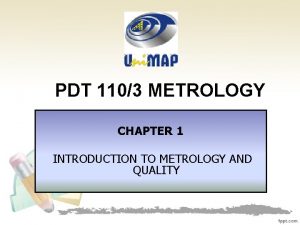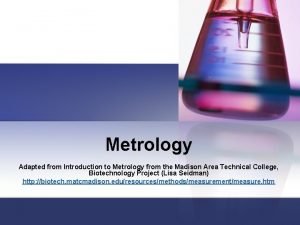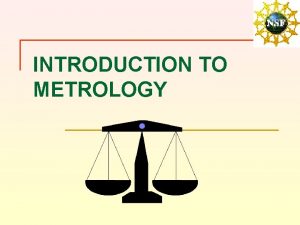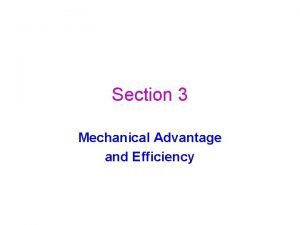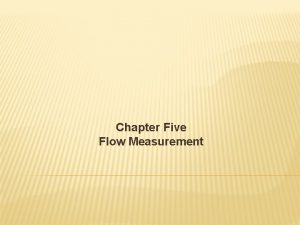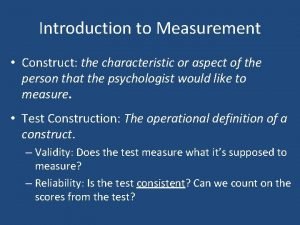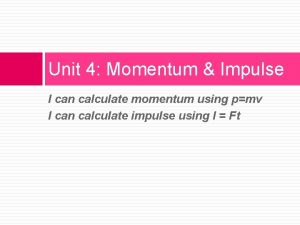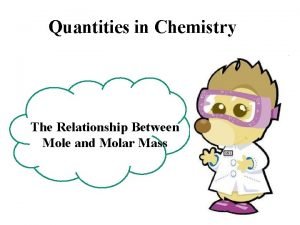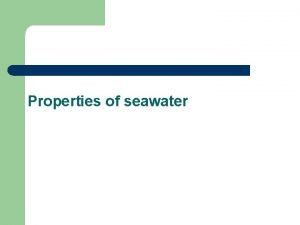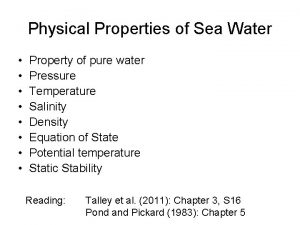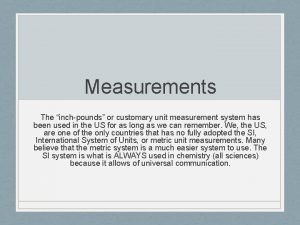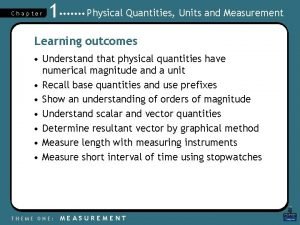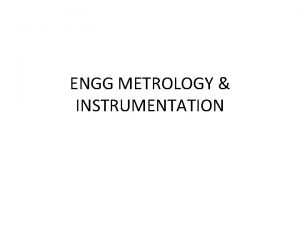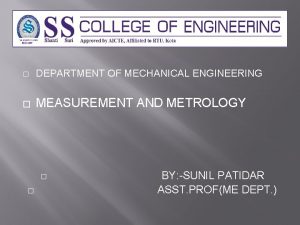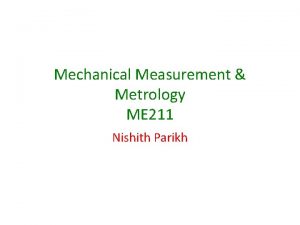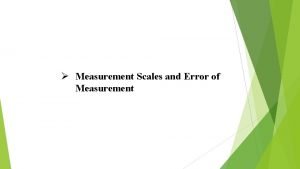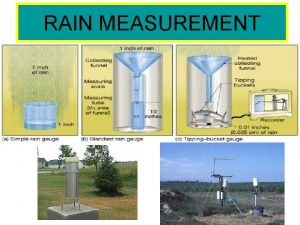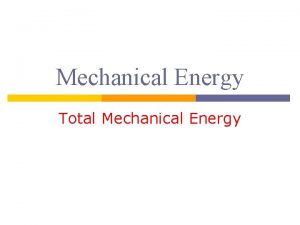Mechanical Measurement Metrology UNIT I INTRODUCTION TO METROLOGY













- Slides: 13

Mechanical Measurement & Metrology UNIT I: INTRODUCTION TO METROLOGY Prepared By: Bhavin Bhimani Asst. Prof. , MEF

COURSE OBJECTIVES • To understand about metrology and their concept • To understand about measurement system and their application with different instruments

COURSE OUTLINE • What is Metrology • Necessity of Metrology • Objectives of metrology • Precision & Accuracy

WHAT IS METROLOGY • The word ‘Metrology’ derived from the Greek word ‘Metron’ which means ‘Measure’. In one sentence we can say scientific study of measurement. • Metrology is primary concerned with methods of measurement based on agreed units and standards. • Metrology is the science of measurement, embracing both experimental and theoretical determinations at any level of uncertainty in any field of science and technology. “International Bureau of Weights and measurements (BIPM)” • Metrology is concerned with the establishment, reproduction, conservation and transfer of units of measurements and their standards. • Research means discovery of new facts & their correct interpretation. • Experiment is act of operation carried out under conditions determined by experimenter. • So there would be a need to measure the parameters like displacement, velocity, pressure, and the dimensions of the instruments used.

• APPLICABLE TO - Evaluate the response of system or instrument - Establish validity of design & determine the data for new or improved design. - Monitoring the data for health & safety i. e. forecasting the weather or prediction of earthquake - Preserve the food in refrigerator & cold storage - Automobiles are equipped with instrument to measure the speed of vehicle, condition off battery, fuel indicator etc. • Development in automation & in every field requires higher level of accuracy.

• Thus it can be said that metrology is mainly concerned with -- Establishing the units of measurements, reproducing this units in form of standards, and ensuring the uniformity of measurement. -- Developing the methods of measurement. -- Analyzing the accuracy of methods of measurement -- Finding out the causes of errors in measurement & eliminating these errors.

• Due to industrial revolution, industrial inspection does not simply means of checking and full filling of specific requirement of manufacturer. • Inspection is carried out from raw material to finished product and even assembled parts in machines i. e. from input to semi finished and finished component. • It can be done with help of gauges and metrology is concerned with design, testing and manufacturing of these gauges.

NECESSITY OF METROLOGY • To make sure that manufactured component is comparable with standard • To reduce re-work and scrap by providing the results of inspection to manufacturing dept • To meet the interchangeability of manufacture • Also helps to judge that acceptance of part after minor repair is possible or not • No faulty products are supplied to customers. So helps in maintaining corporate relation

OBJECTIVES OF METROLOGY • Basic objective is to provide the required accuracy at minimum cost. • For different department like Tool room, Press shop, Assembly line, R & D etc. • Through evaluation of newly developed products. • To determine the measuring instrument capabilities. • Minimize the cost of inspection by effective measurement with help of statistical quality control techniques. • Standardization of measuring methods. • Maintenance of accuracy by periodical calibration

PRECISION & ACCURACY • Precision is defined as the repeatability of a measuring process. It indicates up to what extent identically performed measurement agree with each other. • Example of carpenter and his scale. During cutting of board accuracy is not required. While ordering the board from market accuracy is important • Precision is concerned with a process or set of measurement & not a single measurement • Individual measurement are scattered about the mean, and the precision tells us how well the various measurements performed by same instrument on the same component agree with each other

• Manufacturing of mating parts in single plant and for assemble it, precision is required, while in different plant and to assemble it, accuracy is required • ACCURACY • It is degree to which the measured quantity is closer to true value. • From every aspect it is most important so better to understand factors affects it and factors affected by it.

• Absolute accuracy is not possible it means error is present amount of which is depends on design of measuring equipment, manufacturing of it, skill of operator, method adopted for measurement • Achieving the high accuracy affected by Sensitivity and consistency of an instruments. • For this type of instruments errors will be constant.

ASSESSMENT STRATEGY • Based on arranging test • Based on MCQ based test
 Introduction to metrology
Introduction to metrology Introduction of metrology
Introduction of metrology Introduction to metrology
Introduction to metrology Actual mechanical advantage vs ideal mechanical advantage
Actual mechanical advantage vs ideal mechanical advantage Unit 6 review questions
Unit 6 review questions Flow measurement introduction
Flow measurement introduction Introduction to measurement
Introduction to measurement Momentum units of measurement
Momentum units of measurement Unit of moles
Unit of moles Mole unit of measurement
Mole unit of measurement Cohesion bond
Cohesion bond Salinity unit of measurement
Salinity unit of measurement Unit of measurement for power
Unit of measurement for power Physical quantities
Physical quantities
